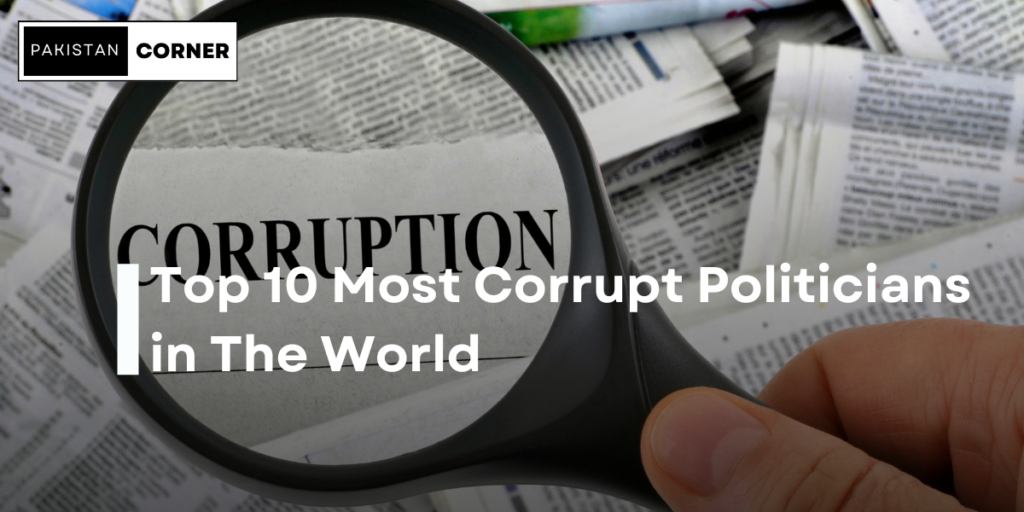Explore the dark realm of power and deceit with our deep dive into the top 10 most corrupt politicians in the world, unmasking the impact of their actions on global governance and societal trust.
Key Takeaways:
- Widespread Influence: The top 10 most corrupt politicians have wielded significant power, often manipulating it for personal gain at the expense of public trust and governance.
- Economic Ramifications: Their actions have not only tainted political institutions but also led to severe economic repercussions, stunting national development and eroding global economic stability.
- Challenges to Democracy: These figures highlight the fragility of democratic processes in the face of corruption, underscoring the need for robust systems of accountability and transparency.
- Global Issue: Corruption is a global issue, transcending borders and underscoring the need for international cooperation in the fight against graft and for the promotion of good governance.
- Public Trust: The legacy of these politicians serves as a stark reminder of the critical importance of integrity in leadership to maintain and enhance public trust in government institutions.
In a world where power often corrupts, the dark shadow of corruption looms large, undermining the very foundations of governance and eroding societal trust. At the heart of this global scourge are figures cloaked in the guise of leadership, yet marred by corrupt practices that betray the public’s faith. This article aims to shed light on ten of the most notoriously corrupt politicians across the globe, drawing insights from the vigilant watch of Transparency International. By delving into the murky waters of political corruption, we endeavor to understand its pervasive impact and the critical need for transparency and accountability.
Understanding Political Corruption
At its core, political corruption represents the abuse of public power for personal gain. Manifesting in various forms such as bribery, embezzlement, and nepotism, it is a multifaceted plague that infects the very essence of governance. From the illicit exchange of favors in the corridors of power to the siphoning of public funds, corruption knows no bounds. It is a global menace, transcending borders and cultures, with organizations like Transparency International spearheading the fight against this insidious threat by monitoring and exposing its reach.
The Ranking Methodology
Determining the rank of corrupt politicians is no small feat. It involves a meticulous evaluation of their actions, the scale of corruption, and its impact on their respective countries. Transparency International, among others, employs comprehensive methodologies that consider the extent of bribery, the embezzlement of public funds, and the manipulation of political power for personal gain. Transparency and accountability stand as the pillars of this assessment, shedding light on the dark corners of political corruption.
Spotlight on Corrupt Politicians
- Suharto: Indonesia’s landscape was forever altered by Suharto’s regime, marked by staggering levels of corruption. His reign saw the embezzlement of billions, casting a long shadow over the nation’s development.
- Asif Ali Zardari: Known colloquially as “Mr. 10 Percent,” Zardari’s tenure in Pakistan’s political arena was riddled with corruption scandals, significantly tarnishing the country’s image and governance.
- Vladimir Putin: Under Putin’s leadership, Russia has been plagued by allegations of corruption, with accusations of personal enrichment and the consolidation of power through corrupt means casting a pall over his administration.
- Nawaz Sharif: Sharif’s political journey in Pakistan has been marred by major corruption cases, challenging the country’s governance and shaking the public’s trust in its leaders.
- Petro Poroshenko: Ukraine’s struggle with corruption saw a significant chapter during Poroshenko’s tenure, with numerous incidents raising public outcry and demanding accountability.
- Sigmundur Davíð Gunnlaugsson: Iceland’s political scene was rocked by Gunnlaugsson’s involvement in the Panama Papers, spotlighting the global issue of leaders hiding wealth in offshore accounts.
- David Cameron: While less directly implicated, Cameron’s tenure was not without its shadows, with indirect connections to corrupt practices sparking debates on ethical governance.
- Ashraf Ghani: Ghani’s leadership in Afghanistan was marred by corruption allegations, culminating in a government collapse that highlighted the devastating impact of corrupt leadership.
- Alexander Lukashenko: Lukashenko’s long rule over Belarus has been characterized by accusations of corruption, undermining the nation’s democratic processes and human rights.
- Volodymyr Zelensky: Despite a promise of reform, Zelensky faces significant challenges in combating entrenched corruption within Ukraine, testing his resolve and the nation’s path forward.
Suharto: The Shadow Over Indonesia
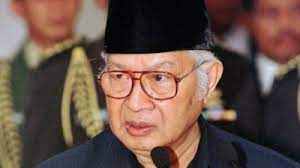
In the annals of global corruption, few figures loom as large as Suharto, the second President of Indonesia. His regime, stretching over three decades from 1967 to 1998, stands as a stark embodiment of how power can corrupt absolutely. Suharto’s tenure altered Indonesia’s landscape, not through development or progress, but through a staggering level of corruption that saw billions of dollars embezzled, leaving a long shadow over the nation’s future.
The Genesis of Corruption
Suharto’s rise to power was marked by a military coup, under the guise of saving the nation from a purported communist insurgency. This event set the stage for what would become one of the most corrupt regimes in history. Suharto established a “New Order” government, which, while it brought some level of economic stability and growth, also institutionalized corruption on an unprecedented scale.
The Mechanisms of Embezzlement
Suharto’s corruption was systemic, involving a complex web of patronage and cronyism. He funneled state funds into the coffers of his family and close associates, utilizing state-owned enterprises as personal piggy banks. These acts of embezzlement were not mere side operations but were central to the functioning of his regime. The collusion between business and government under Suharto blurred the lines of legality and morality, with contracts, projects, and state assets often appropriated for personal gain.
Impact on Indonesia
The cost of Suharto’s corruption was colossal. It is estimated that up to $35 billion was embezzled during his tenure. This massive drain on the country’s resources stifled economic development, exacerbated inequality, and entrenched a culture of corruption that persists to this day. The Asian Financial Crisis of 1997-1998, which led to Suharto’s downfall, exposed the fragility of Indonesia’s economy, much of it attributed to the corruption and mismanagement of his regime.
The Legacy of Corruption
Suharto’s legacy is a cautionary tale of how corruption can embed itself into the fabric of a nation. Despite attempts to bring him to justice, Suharto was never formally charged or convicted of corruption, illustrating the deep-rooted challenges of eradicating systemic corruption. His case underscores the need for robust mechanisms of transparency and accountability in governance, to prevent such a history from repeating itself.
Conclusion
Suharto’s regime is a stark reminder of the devastating impact that corruption can have on a country. The lessons from Indonesia’s experience under Suharto are clear: vigilance, transparency, and accountability are non-negotiable pillars of good governance. As Indonesia continues to navigate its path forward, the shadow of Suharto’s corruption serves both as a reminder of the past and a warning for the future.
Asif Ali Zardari: The Saga of “Mr. 10 Percent”
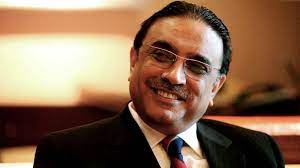
Asif Ali Zardari, a name synonymous with political controversy, has long been a pivotal figure in Pakistan’s political landscape. Dubbed “Mr. 10 Percent” for his notorious reputation of allegedly demanding kickbacks, Zardari’s tenure in office has been marred by a series of corruption scandals that have left an indelible mark on Pakistan’s governance and its international image.
The Rise of Zardari
Zardari’s ascent to prominence came through his marriage to Benazir Bhutto, the charismatic leader of the Pakistan People’s Party (PPP) and a two-time Prime Minister of Pakistan. His foray into politics was characterized by rapid ascension, often attributed more to his marital ties than to political acumen. Despite a lack of initial political pedigree, Zardari quickly became a key figure within the PPP and the broader political arena.
The Allegations Begin
The moniker “Mr. 10 Percent” emerged early in Zardari’s career, a reference to the alleged commissions he would demand for facilitating government contracts and investments. These allegations weren’t confined to mere rumors; they were backed by numerous instances where large-scale government contracts and national assets seemed to be managed in a manner that conspicuously benefited Zardari and his associates.
Scandals and Controversies
Zardari’s tenure saw a litany of corruption scandals, from kickbacks in government procurements to misappropriation of state funds. Notable among these was the Swiss bank case, where Zardari and Bhutto were accused of laundering millions through Swiss accounts, leading to protracted legal battles both within Pakistan and internationally. Another significant controversy was the Surrey mansion affair, where Zardari was alleged to own a lavish estate in the UK, purportedly purchased with ill-gotten wealth.
Impact on Governance
The constant swirl of corruption allegations around Zardari significantly impacted Pakistan’s governance. It led to political instability, with his tenure as president from 2008 to 2013 marked by a constant battle against charges of corruption, weakening the government’s effectiveness. The perception of widespread corruption under his watch contributed to diminishing public trust in institutions, eroding the fabric of Pakistan’s democracy.
Economic Repercussions
The economic ramifications of Zardari’s alleged corruption were profound. Foreign investment dwindled amidst concerns over governance and transparency, exacerbating Pakistan’s economic challenges. The misallocation of resources and the prioritization of personal gain over national interest hampered economic development, leaving critical infrastructure and social services underfunded.
Legal Battles and Public Perception
Despite the myriad accusations, Zardari’s legal battles have often ended in acquittals or unresolved cases, partly due to Pakistan’s complex legal system and the political influence wielded by Zardari. Public perception, however, remains largely skeptical of his tenure, viewing it as a period rife with graft and mismanagement.
The Legacy of Corruption
Zardari’s legacy in Pakistan’s political history is contentious. While his supporters laud his resilience and political savvy, his detractors see his tenure as emblematic of the corruption that can pervade the highest echelons of power. The enduring image of “Mr. 10 Percent” serves as a stark reminder of the pernicious effects of corruption on governance and public trust.
Conclusion
Asif Ali Zardari’s political journey is a complex narrative of power, controversy, and alleged corruption. It underscores the challenges that emerging democracies face in combating corruption within their ranks. The saga of “Mr. 10 Percent” is not just a personal story but a reflection of the broader struggle against corruption in Pakistan, highlighting the imperative for robust mechanisms of accountability and transparency to safeguard the nation’s future.
Vladimir Putin: Power and Corruption in Russia
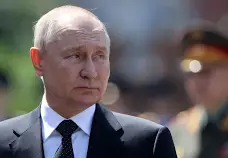
Vladimir Putin, Russia’s enigmatic leader, has long been a figure of intrigue and controversy on the global stage. Since rising to power in the late 1990s, Putin has been associated with an administration that, according to critics and observers, is deeply enmeshed in corruption. Allegations of personal enrichment, alongside the consolidation of power through questionable means, have cast a long shadow over his tenure, raising questions about the intertwining of governance and corruption in Russia.
The Ascendancy of Putin
Putin’s ascent to power was meteoric, marked by a rapid rise from relative obscurity to the pinnacle of Russian politics. Initially serving as the director of the Federal Security Service (FSB), and later as Prime Minister under President Boris Yeltsin, Putin was appointed as Acting President at the close of 1999, following Yeltsin’s resignation. His subsequent election victories solidified his grip on power, transforming him into a central figure in Russian politics.
The Allegations Surface
The corruption allegations under Putin’s regime are multifaceted, encompassing a broad spectrum of activities from outright bribery and embezzlement to more sophisticated forms of graft, such as the manipulation of state assets and the co-opting of the judicial system to serve personal and political ends. Critics argue that Putin has utilized his position to amass considerable personal wealth, although direct evidence remains elusive, shrouded in secrecy and the complexities of international finance.
The Power Consolidation Mechanism
One of the key facets of Putin’s leadership has been the consolidation of power, achieved through a careful blend of political acumen and, as alleged, corrupt practices. This consolidation is evident in the systematic dismantling of opposition, control over media and public discourse, and the creation of an inner circle of loyalists placed in strategic positions within the government and major state-owned enterprises. Such moves, while enhancing Putin’s control, have also raised significant concerns about the erosion of democratic institutions and principles in Russia.
Economic Implications
The alleged corruption under Putin’s administration has had profound implications for the Russian economy. While Russia has experienced periods of economic growth during his tenure, critics argue that corruption has stifled innovation, deterred foreign investment, and perpetuated a climate of uncertainty and instability. The concentration of wealth and power in the hands of a few has also exacerbated social inequalities, contributing to widespread disillusionment among the Russian populace.
The International Perspective
Internationally, Putin’s Russia has often been at odds with the West, with allegations of corruption adding another layer of complexity to diplomatic relations. Sanctions imposed by Western nations, partly in response to perceived corrupt practices and human rights abuses, have further isolated Russia, impacting its economy and international standing.
The Response to Allegations
The Russian government, under Putin, has consistently denied allegations of corruption, framing them as politically motivated attacks aimed at undermining Russia’s stability and Putin’s leadership. The lack of transparency and the control over the media have made it challenging to ascertain the full extent of corruption, leaving much of the international community reliant on investigative journalism and leaks, such as the Panama Papers, for glimpses into the alleged corrupt practices.
The Legacy and Future
Vladimir Putin’s legacy is inextricably linked to the allegations of corruption that have marred his administration. As he continues to play a pivotal role in Russian and global politics, the debate over the extent and impact of corruption under his leadership remains a contentious issue. The future trajectory of Russia, both domestically and internationally, will be significantly influenced by how these allegations are addressed and whether substantial measures are implemented to combat corruption and restore public trust in governance.
Conclusion
The narrative of Vladimir Putin’s tenure as Russia’s leader is complex and multifaceted, characterized by significant achievements and marred by persistent allegations of corruption. The intertwining of power, governance, and alleged corrupt practices under his administration presents a cautionary tale about the challenges of maintaining transparency, accountability, and democratic principles in the face of concentrated political power. As Russia stands at a crossroads, the resolution of these issues will not only shape Putin’s legacy but also determine the future path of the nation.
Nawaz Sharif: Navigating Through Controversy and Corruption
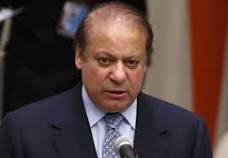
Nawaz Sharif, a prominent figure in Pakistan’s political arena, has had a career that encapsulates the tumultuous nature of the nation’s governance. His tenure as Prime Minister, marked by economic initiatives and infrastructural development, has been equally shadowed by allegations of corruption and mismanagement. These accusations have not only challenged the fabric of Pakistan’s governance but have also significantly eroded public trust in its leaders.
The Political Landscape
Sharif’s political journey began in the Punjab province, eventually leading to three non-consecutive terms as Prime Minister of Pakistan. His political narrative has been one of resilience, marked by a rise to power amidst the complex dynamics of Pakistani politics, a military coup that led to years of exile, and a triumphant return to leadership.
The Dawn of Allegations
The allegations of corruption against Nawaz Sharif are varied and extensive, involving charges of money laundering, tax evasion, and embezzlement. The Panama Papers leak in 2016 was a pivotal moment, revealing that members of the Sharif family owned expensive residential properties in London through offshore companies. These revelations raised serious questions about the sources of their wealth and their tax obligations.
The Legal and Political Fallout
The fallout from the Panama Papers was swift and severe. The Supreme Court of Pakistan took up the case, leading to a landmark decision in 2017 that disqualified Nawaz Sharif from holding public office. The court’s ruling was based on allegations that Sharif had failed to disclose his employment with a UAE-based company in his nomination papers, an omission seen as indicative of larger patterns of financial irregularities and corruption.
Economic Ramifications
The economic implications of the corruption allegations against Sharif were significant. Investor confidence was shaken, and Pakistan’s fragile economy faced further instability. The perception of rampant corruption at the highest levels of government discouraged foreign investment and complicated international aid and loan agreements, exacerbating the country’s economic challenges.
The Public Trust Erodes
The impact on public trust was perhaps the most profound consequence of the corruption allegations against Nawaz Sharif. In a country where political leaders are often viewed with skepticism, the revelations and subsequent legal battles further deepened the disillusionment among the Pakistani populace. The saga underscored the urgent need for transparency, accountability, and reforms within Pakistan’s political system.
The Broader Implications for Governance
Sharif’s case is emblematic of the broader challenges facing governance in Pakistan. The intertwining of personal business interests with political power, the lack of clear mechanisms for accountability, and the pervasive influence of dynastic politics have all contributed to a governance landscape that is vulnerable to corruption and inefficiency.
The Response and Defense
Throughout the legal battles and public scrutiny, Nawaz Sharif and his party, the Pakistan Muslim League (Nawaz), have maintained their innocence, attributing the charges to political vendettas and external pressures. Sharif’s supporters argue that his disqualification and legal challenges were part of a broader attempt to undermine his leadership and destabilize the democratically elected government.
The Path Forward
The saga of Nawaz Sharif raises critical questions about the path forward for Pakistan. The need for robust legal and institutional frameworks to combat corruption is clear, as is the imperative for political reforms that prioritize the nation’s interests over personal or party gains. The resolution of these issues is crucial for restoring public trust and ensuring stable, effective governance in Pakistan.
Conclusion
Nawaz Sharif’s political journey, marked by significant achievements and marred by serious allegations of corruption, reflects the complex interplay between power, governance, and accountability in Pakistan. The challenges highlighted by his tenure are not isolated but are indicative of systemic issues that require concerted efforts to address. As Pakistan continues to navigate its political future, the lessons from Sharif’s experiences remain pertinent, underscoring the need for transparency, integrity, and reform in the quest for effective governance.
Petro Poroshenko: The Chocolate King’s Bittersweet Reign
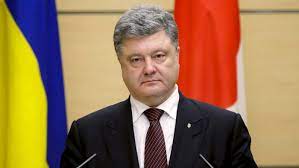
Petro Poroshenko, often referred to as the “Chocolate King” due to his vast confectionery empire, stepped into the Ukrainian presidency with the promise of reform and a new direction for a country embroiled in political turmoil and conflict. However, his tenure from 2014 to 2019 was marked by significant challenges, not least of which was the persistent shadow of corruption that has long plagued Ukraine. Despite initial optimism, Poroshenko’s administration faced numerous allegations that questioned the integrity of his leadership and the efficacy of his anti-corruption measures.
The Promise of Reform
Poroshenko’s ascent to the presidency came at a critical juncture in Ukraine’s history, following the 2014 Euromaidan protests and the ousting of Viktor Yanukovych. His campaign was built on a platform of anti-corruption, European integration, and the restoration of stability and sovereignty in the face of Russian aggression. The expectations were high, and the desire for change palpable among the Ukrainian populace.
Allegations and Incidents
Despite Poroshenko’s promises, his tenure was not immune to the endemic corruption that has characterized Ukrainian politics. Several high-profile incidents and allegations surfaced, raising public outcry and casting doubt on his commitment to eradicating corruption:
- Offshore Accounts: The Panama Papers leak in 2016 implicated Poroshenko in the use of offshore accounts, suggesting potential tax evasion and conflict of interest, particularly concerning the sale of his Roshen confectionery corporation.
- Defense Scandals: Poroshenko’s administration faced allegations of embezzlement within the defense sector, where officials were accused of siphoning off state funds through corrupt contracts, severely undermining the country’s defense capabilities amid ongoing conflict in the eastern regions.
- Judicial Influence: Accusations of influencing the judiciary to protect allies and persecute opponents raised concerns about the separation of powers and the independence of judicial institutions under Poroshenko’s leadership.
Public Outcry and Demands for Accountability
The revelations and allegations against Poroshenko and his administration led to significant public discontent. The very issues of corruption, lack of transparency, and accountability that had fueled the Euromaidan protests remained unresolved, leading many to question the sincerity of Poroshenko’s reform agenda. This public disillusionment was reflected in the 2019 presidential election, where Poroshenko was decisively defeated by Volodymyr Zelensky, a candidate who, much like Poroshenko in 2014, campaigned on an anti-corruption platform.
Economic and Social Impact
The persistence of corruption under Poroshenko’s administration had tangible economic and social repercussions. Corruption scandals, particularly in defense procurement, not only compromised national security but also diverted much-needed resources from social services and economic development projects. The perception of widespread graft deterred foreign investment and hindered Ukraine’s economic recovery and growth prospects.
The Response to Corruption Allegations
Poroshenko and his administration often countered allegations of corruption with assertions of progress in reforming Ukraine’s corrupt institutions. Measures such as the establishment of the National Anti-Corruption Bureau of Ukraine (NABU) and the introduction of e-procurement systems were cited as evidence of his commitment to fighting corruption. However, critics argued that these measures fell short of bringing about systemic change and were often undermined by political interference and a lack of enforcement.
The Legacy of Poroshenko’s Presidency
The legacy of Petro Poroshenko’s presidency is complex. While his tenure saw significant challenges, including the annexation of Crimea by Russia and the conflict in Eastern Ukraine, it was the issue of corruption that ultimately defined much of his presidency. The promises of reform and a break from the corrupt practices of the past remained largely unfulfilled, leaving a bittersweet taste in the mouths of many Ukrainians who had hoped for a new era of governance.
Conclusion
Petro Poroshenko’s presidency underscores the deep-rooted challenges of combating corruption within entrenched political and economic systems. While his leadership navigated through tumultuous times marked by conflict and geopolitical pressures, the enduring issue of corruption remained a significant obstacle to Ukraine’s aspirations for reform and European integration. Poroshenko’s tenure serves as a reminder of the complexities of governance in a post-Soviet state and the critical need for genuine, systemic reforms to fulfill the aspirations of the Ukrainian people for a transparent, accountable, and democratic government.
Sigmundur Davíð Gunnlaugsson: The Panama Papers and Iceland’s Political Quake

Sigmundur Davíð Gunnlaugsson’s tenure as Prime Minister of Iceland is a pivotal chapter in the narrative of global political corruption, most notably marked by the seismic revelations of the Panama Papers. His involvement in this scandal not only spotlighted the issue of leaders concealing wealth in offshore accounts but also triggered a profound crisis of confidence in Icelandic politics, challenging the country’s image as a paragon of Nordic transparency and good governance.
The Prelude to Controversy
Gunnlaugsson entered Iceland’s political arena as a fresh face, promising economic stability and recovery in the aftermath of the 2008 financial crisis that had severely impacted the country. His political ascent was rapid, culminating in his election as Prime Minister in 2013. Gunnlaugsson’s platform of financial reform and accountability resonated with a populace weary of economic turmoil and political scandal.
The Panama Papers Unfold
The tranquility of Gunnlaugsson’s tenure was shattered in April 2016 when the Panama Papers, a massive leak of documents from the law firm Mossack Fonseca, revealed that he and his wife owned an offshore company, Wintris Inc., located in the British Virgin Islands. The company was reportedly used to hold millions in bonds in Iceland’s major banks, raising alarming questions about conflicts of interest, especially given Gunnlaugsson’s role in negotiating the banks’ fate post-crisis.
The Fallout
The revelations sent shockwaves through Icelandic society. The notion that the Prime Minister could be implicated in the very practices of financial secrecy and potential evasion that he had campaigned against was seen as a profound betrayal. Public outcry was swift and intense, with thousands taking to the streets in protest, demanding accountability and Gunnlaugsson’s resignation.
The Political and Ethical Quagmire
At the heart of the controversy was not just the fact of the offshore account but the perceived conflict of interest and the lack of transparency. Gunnlaugsson’s involvement in negotiations about the banks, while potentially standing to benefit from the outcomes through his offshore holdings, struck at the core principles of ethical governance. The situation was further complicated by his initial attempts to downplay and dismiss the significance of the revelations, which only fueled public outrage and skepticism.
Resignation and Repercussions
The mounting pressure from the public and political opponents eventually led to Gunnlaugsson’s resignation, marking him as one of the first major political casualties of the Panama Papers. His departure from office, however, did not close the chapter on the affair. The scandal prompted a broader national introspection about the integrity of Iceland’s political system and the mechanisms in place to prevent such ethical breaches.
The Broader Implications for Iceland
The Gunnlaugsson episode had far-reaching implications for Iceland, a country that prides itself on high standards of transparency and low levels of corruption. The scandal tarnished Iceland’s international reputation and underscored the vulnerabilities even in seemingly transparent systems. It sparked calls for reform, including stronger regulations on financial disclosures and conflicts of interest for public officials.
The Global Context
The fallout from the Panama Papers and Gunnlaugsson’s involvement also contributed to a global conversation about the ethics of offshore banking, tax evasion, and the responsibilities of public officials. It highlighted the sophisticated methods by which wealth can be hidden and the challenges facing regulators and tax authorities worldwide in combatting such practices.
Reflections and Reforms
In the aftermath of the scandal, Iceland undertook measures to strengthen its political and financial systems, including enhancing transparency laws and oversight mechanisms for public officials. Gunnlaugsson’s case became a cautionary tale, serving as a reminder of the constant vigilance required to maintain the integrity of democratic institutions.
Conclusion
Sigmundur Davíð Gunnlaugsson’s political career will forever be shadowed by the Panama Papers scandal, a saga that exposed not only his personal actions but also broader issues of financial secrecy and ethical governance. The episode serves as a stark illustration of the challenges facing modern democracies in an era of globalized finance, where transparency and accountability are paramount. As Iceland and the world grapple with these issues, the lessons from Gunnlaugsson’s tenure remain a critical reference point for understanding the complexities of political integrity in the 21st century.
David Cameron: Navigating the Shadows of Governance
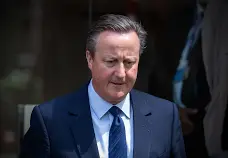
David Cameron’s premiership, spanning from 2010 to 2016, was a period of significant political and economic transformation for the United Kingdom. While Cameron’s tenure was largely characterized by efforts to stabilize the British economy and redefine its international relationships, notably through austerity measures and the initiation of the Brexit referendum, it was not without its controversies. Among these were indirect connections to corrupt practices that sparked considerable debate over ethical governance and the integrity of political leadership.
The Context of Cameron’s Leadership
Cameron came to power in a coalition government, promising a new era of transparency, accountability, and fiscal responsibility in the wake of the global financial crisis. His government introduced sweeping reforms aimed at reducing public sector deficits, revitalizing the economy, and addressing social issues. However, Cameron’s leadership was also marked by challenges, including public sector strikes, debates over social welfare reforms, and increasing scrutiny of political conduct.
The Shadows Emerge
The most notable controversy that cast a shadow over Cameron’s tenure was his connection to the Panama Papers leak in 2016. While Cameron himself was not directly implicated in any illegal activities, the revelation that his late father had run an offshore fund (Blairmore Holdings) which avoided paying tax in the UK for 30 years raised questions about Cameron’s personal finances and his stance on tax avoidance and evasion.
The Response to Allegations
Cameron’s handling of the situation drew criticism for its perceived lack of transparency and initial reluctance to disclose details about his financial interests. After days of intense pressure and media scrutiny, Cameron admitted to having owned shares in his father’s offshore fund, which he sold before becoming Prime Minister. He insisted that his family’s tax affairs were in order and that he had not benefited from any offshore funds since taking office.
Ethical Governance in Question
The indirect connection to the Panama Papers brought the issue of ethical governance and the personal integrity of political leaders to the forefront of public discourse in the UK. Cameron’s situation highlighted the complex interplay between personal financial dealings and public trust, raising critical questions about the transparency expected of public officials and the potential conflicts of interest that can arise from their private interests.
Broader Implications for Cameron’s Government
The controversy had broader implications for Cameron’s government, which had been vocal about combating tax evasion and aggressive tax avoidance. Critics argued that the revelations undermined the government’s moral authority to lead such efforts and highlighted perceived disparities between the political elite’s rhetoric and actions. The incident fueled public debates about the fairness of the tax system and the responsibilities of those in positions of power.
Reforms and Reactions
In response to the fallout from the Panama Papers and the scrutiny of his financial affairs, Cameron took steps to address the concerns raised. He announced new measures to enhance transparency, including a commitment to establishing a public register of company beneficial ownership in the UK. These efforts were part of a broader attempt to restore public trust and demonstrate a commitment to ethical governance.
Cameron’s Legacy and Ethical Governance
David Cameron’s legacy, while defined by numerous domestic and international challenges, including the controversial Brexit referendum, is also marked by the debates over ethical governance that arose during his tenure. The Panama Papers controversy served as a critical moment in British politics, prompting reflection on the standards of transparency and integrity expected of public officials and the importance of maintaining public trust in democratic institutions.
Conclusion
While less directly implicated in corrupt practices, David Cameron’s tenure as Prime Minister was not immune to controversies that challenged the ethical foundations of his government. The debates sparked by his indirect connections to financial practices highlighted in the Panama Papers underscore the ongoing challenges facing political leaders in navigating the fine line between personal interests and public duty. Cameron’s response to these challenges, and the reforms introduced in their wake, reflect the complexities of maintaining ethical governance in an increasingly scrutinized and transparent political landscape.
Ashraf Ghani: A Presidency Undermined by Corruption
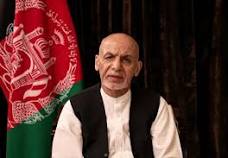
Ashraf Ghani’s presidency in Afghanistan, from 2014 to 2021, was a tenure fraught with high expectations and profound challenges. Tasked with leading a nation grappling with decades of conflict, Ghani’s administration promised reform, stability, and a new chapter for Afghanistan. However, pervasive corruption allegations and a dramatic government collapse painted a starkly different picture, highlighting the destructive impact of corrupt leadership and governance failures in a fragile state.
The Promise of Reform
Ghani, an academic and former World Bank official, brought a technocratic approach to the Afghan presidency. His expertise in state-building and development fueled optimism about potential governance reforms and anti-corruption measures. Ghani’s early days in office were marked by ambitious initiatives aimed at overhauling the Afghan state’s institutions and fostering a climate of transparency and accountability.
The Corruption Quagmire
Despite these intentions, Ghani’s administration was continuously marred by allegations of widespread corruption that permeated various levels of the government. Corruption in Afghanistan was not a new phenomenon, but the persistent nature of graft, patronage, and embezzlement under Ghani’s leadership raised questions about the effectiveness of his reforms and the sincerity of his anti-corruption stance.
- Institutionalized Corruption: Corruption in Afghanistan had become institutionalized, affecting everything from basic service delivery to high-level governmental contracts. Reports of bribery, nepotism, and misappropriation of funds were rampant, undermining efforts to build a stable and effective state apparatus.
- The Security Sector: Perhaps most critically, corruption within the Afghan security forces severely impacted their effectiveness and morale. Cases of “ghost soldiers,” where salaries were siphoned off for non-existent troops, and the embezzlement of resources meant for military and police units, eroded the very foundation of Afghanistan’s defense capabilities.
- Impact on Development Projects: International aid, a significant component of Afghanistan’s reconstruction efforts, was also susceptible to corruption. Despite oversight, significant portions of aid were diverted through corrupt channels, reducing the impact of development projects intended to uplift the Afghan populace.
The Tipping Point
The culmination of these issues was starkly highlighted in the rapid collapse of the Afghan government in August 2021, as U.S. and NATO forces completed their withdrawal. The Taliban’s swift takeover was facilitated not only by military might but also by the weakened state of Afghan institutions, hollowed out by years of corruption and mismanagement. The government’s fall was a dramatic testament to the corrosive impact of corruption on state resilience and legitimacy.
Public Trust and Governance
The erosion of public trust was a significant casualty of the pervasive corruption under Ghani’s leadership. The Afghan populace’s faith in their government waned as corruption remained unchecked and promises of reform unfulfilled. This disillusionment contributed to a lack of national cohesion and undermined efforts to build a unified resistance against insurgent forces.
Ghani’s Response and Exile
Ghani’s response to the allegations and the crisis was widely criticized. His abrupt departure from Afghanistan as the Taliban advanced on Kabul was seen by many as an abandonment, leaving a power vacuum and a nation in turmoil. His subsequent exile raised further questions about leadership accountability and the responsibilities of governing officials in times of national crisis.
Reflecting on Leadership and Corruption
Ghani’s presidency underscores the complex interplay between leadership intentions and systemic corruption in a fragile state context. While his technocratic approach and reformist agenda offered a vision of change, the entrenched nature of corruption in Afghanistan posed insurmountable challenges. The collapse of his government serves as a somber reminder of how deeply corruption can undermine state structures, contributing to instability and conflict.
Conclusion
The story of Ashraf Ghani’s presidency is a cautionary tale about the limits of leadership in the face of systemic corruption. His tenure, marked by the tragic collapse of the Afghan government, highlights the critical need for robust, transparent, and accountable governance structures, especially in countries vulnerable to conflict and instability. It serves as a stark reminder that without addressing the root causes of corruption, even the most well-intentioned leaders can find their efforts undone, with devastating consequences for their nation and people.
Alexander Lukashenko: The Grip of Authoritarianism and Corruption
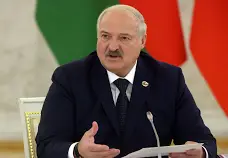
Alexander Lukashenko’s tenure as the President of Belarus, beginning in 1994, stands as one of the most enduring examples of post-Soviet authoritarianism. His rule, characterized by an iron grip on power and widespread allegations of corruption, has significantly undermined the nation’s democratic processes and human rights, casting a long shadow over Belarusian society and governance.
The Foundation of Lukashenko’s Rule
Lukashenko came to power with a populist agenda, promising economic stability and a return to the order of the Soviet era. Over the years, he consolidated power through a series of referendums and legislative changes that expanded his authority, eliminated term limits, and weakened the parliamentary system, effectively making Belarus a presidential republic with Lukashenko at its helm.
Corruption Under Lukashenko’s Regime
The allegations of corruption under Lukashenko are multifaceted, touching every aspect of Belarusian political and economic life:
- Centralization of Power: Lukashenko’s control over the economy and the state apparatus has allowed for an opaque system of governance where corruption thrives. The lack of independent oversight institutions and a free press has made it difficult to scrutinize government dealings and hold officials accountable.
- Economic Mismanagement: Despite maintaining a facade of economic stability, Lukashenko’s policies have often been criticized for inefficiency and cronyism. State-owned enterprises, which dominate the economy, are seen as hotbeds of corruption, benefiting a close circle of elites while the broader economy suffers.
- Political Repression and Corruption: Lukashenko’s regime has been marked by political repression, with opposition figures, activists, and journalists frequently targeted. This environment of fear and suppression not only violates human rights but also serves to maintain the status quo, stifling any challenges to corrupt practices.
The 2020 Presidential Election and its Aftermath
The 2020 presidential election in Belarus, widely denounced by the international community and the Belarusian opposition as rigged, marked a turning point in Lukashenko’s rule. The massive protests and strikes that followed, met with brutal crackdowns, highlighted the lengths to which Lukashenko would go to maintain power, further entrenching corruption and authoritarianism.
International Isolation
Lukashenko’s actions, particularly in the wake of the 2020 election, have led to increased international isolation for Belarus. Sanctions from Western countries have targeted key industries and individuals within Lukashenko’s inner circle, aiming to pressure the regime towards reform. However, Lukashenko has leaned more heavily into relationships with traditional allies like Russia, which has provided economic and political support, complicating international efforts to address corruption and authoritarianism in Belarus.
The Human Cost
The human cost of Lukashenko’s rule is profound. Thousands of Belarusians have been detained, many subjected to torture and inhumane treatment, for participating in peaceful protests or voicing dissent. The stifling of opposition and civil society not only undermines democratic freedoms but also perpetuates a system where corruption goes unchecked, and accountability is non-existent.
Lukashenko’s Response to Allegations
Lukashenko has consistently denied allegations of corruption and electoral fraud, framing the protests and international criticism as part of a Western plot to destabilize Belarus. This narrative, propagated through state-controlled media, seeks to justify the repression and maintain the regime’s grip on power.
The Future of Belarus
The future of Belarus remains uncertain, with Lukashenko’s regime showing little willingness to loosen its hold on power or address the systemic issues of corruption and authoritarianism. The resilience of the Belarusian opposition and civil society, despite the odds, keeps alive the hope for a democratic Belarus free from corruption and repression.
Conclusion
Alexander Lukashenko’s long rule over Belarus is a stark reminder of how authoritarianism and corruption can intertwine to undermine a nation’s democratic processes and violate human rights. The Belarusian experience under Lukashenko highlights the critical need for international vigilance and support for democratic movements worldwide, emphasizing the importance of transparency, accountability, and respect for human dignity in governance.
SEO Optimized Article Writer socialguruspot
Volodymyr Zelensky: The Comedian-Turned-President’s Battle Against Corruption
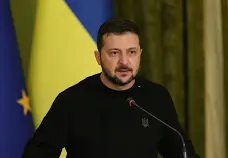
Volodymyr Zelensky’s rise to the presidency of Ukraine in 2019 was nothing short of meteoric. A comedian and actor with no prior political experience, Zelensky captured the imagination of the Ukrainian people with his promise to break the cycle of corruption that has long plagued the nation. However, his tenure has revealed the deep-rooted challenges of enacting reform in a system where corruption is entrenched, testing his resolve and shaping Ukraine’s path forward.
The Promise of a New Era
Zelensky’s campaign, leveraging his everyman persona and leveraging his popularity from playing a corruption-fighting president on television, resonated with a populace weary of traditional political elites. His landslide victory was seen as a mandate for change, with high expectations for sweeping reforms to combat corruption and restore public trust in government.
The Reality of Reform
Once in office, Zelensky’s administration embarked on an ambitious reform agenda aimed at dismantling the oligarchic structures and corrupt practices that have hindered Ukraine’s development and integration with the West. Key initiatives included:
- Judicial Reforms: Efforts to overhaul the judiciary, seen as a critical step in ensuring accountability and the rule of law, have faced significant resistance. The challenge lies in balancing the removal of corrupt judges while safeguarding judicial independence.
- Anti-Corruption Institutions: Zelensky’s government has worked to strengthen anti-corruption bodies such as the National Anti-Corruption Bureau of Ukraine (NABU) and the High Anti-Corruption Court. These institutions are crucial in investigating high-profile corruption cases and holding powerful figures accountable.
- Oligarch Influence: One of Zelensky’s most notable initiatives is the push to diminish the outsized influence of oligarchs on Ukraine’s political and economic life. Legislation aimed at limiting their power has been introduced, though its implementation and effectiveness remain to be seen.
Challenges and Setbacks
Despite these efforts, Zelensky’s administration has encountered numerous obstacles:
- Entrenched Interests: The deeply ingrained nature of corruption in Ukraine means that reforms threaten powerful interests, leading to pushback from those who stand to lose from a more transparent and equitable system.
- Political Will and Capacity: Questions remain about the political will and capacity of Zelensky’s government to fully implement and enforce reforms, especially when facing opposition from well-entrenched networks of power.
- Public Perception: While Zelensky’s initial popularity provided a strong mandate for reform, maintaining public support has been challenging amidst slow progress and ongoing corruption scandals. The patience of the Ukrainian people, eager for tangible improvements in governance and daily life, is not infinite.
The Role of International Partners
International support has been a crucial component of Ukraine’s reform efforts, with partners like the EU and the US providing financial aid, technical assistance, and political backing. This support is often contingent on Ukraine’s progress in implementing reforms, creating additional pressure on Zelensky’s government to deliver results.
The Test of Leadership
Zelensky’s background as an outsider and his commitment to reform have been both an asset and a challenge. His lack of political experience has provided a fresh perspective but has also meant navigating a steep learning curve in dealing with the complexities of governance and the entrenched interests resistant to change.
The Path Forward
The road ahead for Zelensky and Ukraine is fraught with challenges but also opportunities. The success of his presidency and the future of Ukraine hinge on the ability to make substantial progress in combating corruption, which is essential for economic development, democratic consolidation, and closer integration with the West.
Conclusion
Volodymyr Zelensky’s tenure as President of Ukraine highlights the formidable challenges of enacting systemic reforms in a country where corruption is deeply entrenched. His resolve and the nation’s path forward are being tested as he navigates the complexities of political power, entrenched interests, and the aspirations of the Ukrainian people for a transparent, accountable, and just government. The outcome of this struggle will not only define Zelensky’s legacy but also the trajectory of Ukraine in the years to come.
Combating Global Corruption
The battle against corruption is waged on many fronts, with international organizations like Transparency International at the forefront. Global strategies to combat corruption involve enhancing transparency, promoting accountability, and fostering international cooperation to prevent the erosion of democratic processes, economic development, and public trust. By examining specific countries and their struggles with corruption, we gain insights into the pervasive impact of this global issue and the collective effort required to combat it.
Conclusion
The scourge of corruption among world leaders not only undermines the principles of governance but also erodes the very trust that forms the bedrock of societies. By bringing to light the deeds of corrupt politicians and emphasizing the need for a concerted global effort to combat corruption, we underscore the importance of integrity, transparency, and accountability in leadership. The path to a corruption-free world is arduous, but it is only through persistent efforts and global solidarity that we can hope to restore faith in governance and lead the way to a more just and equitable world.
